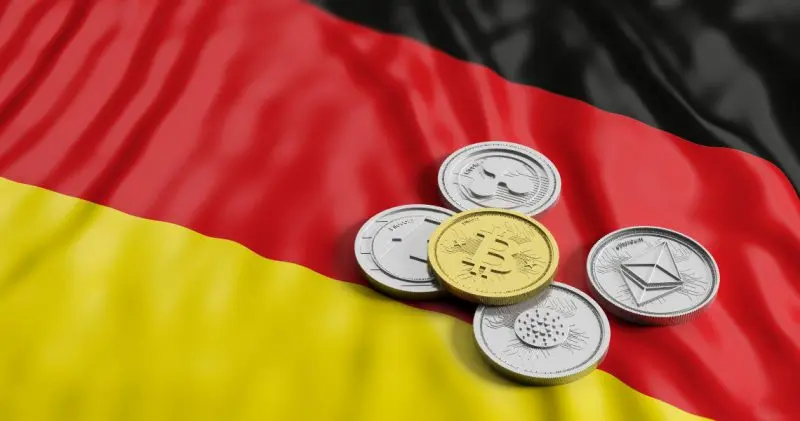Deutsche Bank, Germany’s largest bank, has sought regulatory permission to offer custody services for cryptocurrencies. This development means that bank customers can keep their cryptocurrencies in their bank accounts.
Deutsche Bank wants to offer custody service for cryptocurrencies
Currently, a limited number of banks in the world provide crypto custody services for their customers. Deutsche Bank, Germany’s $1.4 trillion asset manager, made the move amid regulatory pressure in the US. Deutsche Bank recently sought permission from German regulators for its crypto custody services.
David Lynne, who heads Deutsche Bank’s banking unit, says this move is linked to corporate demand. The German banking giant also wants to offer crypto custody services as part of its strategy to increase fee revenues for its institutional clients. It will also support revenue-raising efforts for the bank’s investment arm, DWS Group. Lynne told Bloomberg:
We are developing our digital assets and custody business. We put our application on Bafin for a digital asset license.

Application completed
David Lynne also reported that they have completed the application. “We have submitted our application to Bafin, Germany’s securities watchdog,” he confirmed. Lynne says the move is part of a broader strategy to increase fee income at Deutsche Bank’s corporate bank. However, it also reflects the efforts of Deutsche Bank’s investment arm, DWS Group, to increase revenue from cryptocurrency-related offerings.
Deutsche Bank’s corporate banking divisions first revealed their plans to introduce cryptocurrency custody in late 2020. However, it did not disclose when it plans to launch the service. The episode was directed by Stefan Hoops at the time. Lynne took over when Hoops joined DWS as chief executive officer a year ago.

Germany and cryptocurrencies
Germany has taken a similar approach to the adoption and regulation of cryptocurrencies as other European countries. The German government has been studying Blockchain technology in recent years and has taken several concrete steps. cryptocoin.comApart from the MiCA, which will come into force across Europe, some of Germany’s unique moves are:
- Legal recognition: Germany defines cryptocurrencies as a legal means of payment. In 2013, the Federal Ministry of Finance defined Bitcoin and other virtual currencies as “private money”. As a result, contrary to popular belief, Bitcoin has a legal status in Germany.
- Taxation: Cryptocurrencies are taxed in Germany. Trading in cryptocurrencies is taxable. At the same time, cryptocurrencies are considered capital gains.
- Licensing and Regulation: Cryptocurrency businesses such as cryptocurrency exchanges and wallet providers in Germany are subject to financial regulations. The German Financial Supervisory Authority (BaFin) is tasked with licensing and overseeing cryptocurrency businesses. Licensing procedures include KYC (Authentication) and AML (Money Laundering) rules.
- Blockchain and DLT Projects: Germany also focuses on Blockchain technology and distributed ledger technology (DLT) projects. The German government provides some support and incentives to encourage the adoption of these technologies. Blockchain and DLT projects are being developed especially in the energy, health, logistics and finance sectors.
- Central Bank Digital Currency (CBDC): The German Central Bank is investigating the issue of a digital currency, the Central Bank Digital Currency (CBDC). A working group has been formed to evaluate the potential benefits and risks of CBDC. However, no official German CBDC announcement has yet been made.




